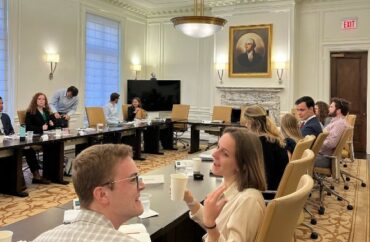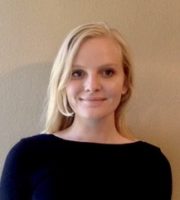
‘It became clear that there was a sustained appetite and aptitude for this kind of learning,’ dean said
While some universities are cutting back on humanities degrees, one foundation is doing its part to ensure students still have access to the great ideas of Western Civilization.
The Hertog Foundation aims “to read closely, to discuss freely, and to pursue the highest and deepest questions together,” Mary Elizabeth Halper, dean of humanities at Hertog and tutor at St. John’s College, told The College Fix via email.
On Jan. 3, the foundation announced 60 fully funded fellows for its 2024 Humanities at Hertog program, now studying works by Fyodor Dostoevsky, Herman Melville, Edith Wharton, and the Romantic poets in online seminars, according to its website.
The foundation is also accepting applications for its spring and summer funded fellowships for both online and residential programs in politics, policy, constitutional law, national security, and the humanities.
The “highly competitive” political science residential programs take place in Washington, D.C., and admitted students receive residential accommodations and a stipend, according to the website.
Professors have included sociology Professor Angel Parham at Loyola University-New Orleans and political scientist Daniel Burns of the University of Dallas.
Since the program began amid the pandemic in 2020, Humanities at Hertog has “received more applications from qualified and compelling applicants than we were able to place in our Winter seminars,” Halper told The Fix.
“It became clear that there was a sustained appetite and aptitude for this kind of learning, so we expanded our offerings to meet that desire,” she said.
With the expansion, Halper said she hopes to show that “the ‘crisis of the humanities’ or the ‘death of the humanities’ is not due to a lack of spirit or desire in the students.”
More than 200 people applied to this year’s Winter seminars, and the program admitted 60 fellows with an average GPA of 3.82.
Fellows “include a Nigerian physics student awarded a Presidential Scholarship by Villanova University, a professional ballet dancer with the Indianapolis Ballet, a Fulbright Scholar from Canada studying at Johns Hopkins SAIS, and a national debate champion at Hillsdale College,” according to the website.
MORE: University of Alabama slashes humanities grad requirements
Emeline McClellan, an alumna of two Humanities at Hertog seminars, told The Fix via email the classes are “uniquely rigorous, tough as graduate seminars.”
“They’re two hours long, and since you’re expected to dress up, turn your phone off, and ignore all other [online] windows, you end up feeling that you’ve entered some closed and shining literary world,” McClellan said.
“You’re required to think — and to do that thinking aloud in class, while 12-15 other minds are doing the same thing alongside you,” she said. “I’d highly recommend Humanities to anyone who wants a massive mental jolt.”
What sets the program apart from the typical college course is that seminars “approach the humanities in a truly humanistic way, pursuing fundamental human questions without confining them to a specialized niche,” Halper told The Fix.
“Painful though it is, with universities cutting departments and courses for some of our applicants, these seminars may not be supplements to their humane education, but the only source of it,” Halper said.
Colleges and universities across the country have eliminated humanities programs amid budget cuts in recent years. In 2023, West Virginia University cut majors like languages and linguistics, as The Fix previously reported. The same year, Marymount University eliminated majors in English, history, math, and philosophy. In 2019, the University of Tulsa slashed its humanities programs.
Samuel Abrams, senior fellow at the American Enterprise Institute and politics professor at Sarah Lawrence College, discussed the foundation’s programming with The Fix via email.
On programs like Humanities at Hertog, Abrams said, “They offer not only an opportunity for students today to broaden their backgrounds in ways that are impossible on college and university campuses at present, but they also enable students to connect across schools and create a powerful professional and social network.”
While Abrams shared a preference for in-person seminars and instruction as “so much more nuance and intimacy can be created in person,” he said that “when students and instructors are committed,” online seminars prove beneficial in “helping students debate, think, write, and become better advocates for particular views.”
MORE: Democrats outnumber Republicans 98 to 1 in Cornell humanities departments
IMAGE: Hertog Foundation/Facebook





Please join the conversation about our stories on Facebook, Twitter, Instagram, Reddit, MeWe, Rumble, Gab, Minds and Gettr.